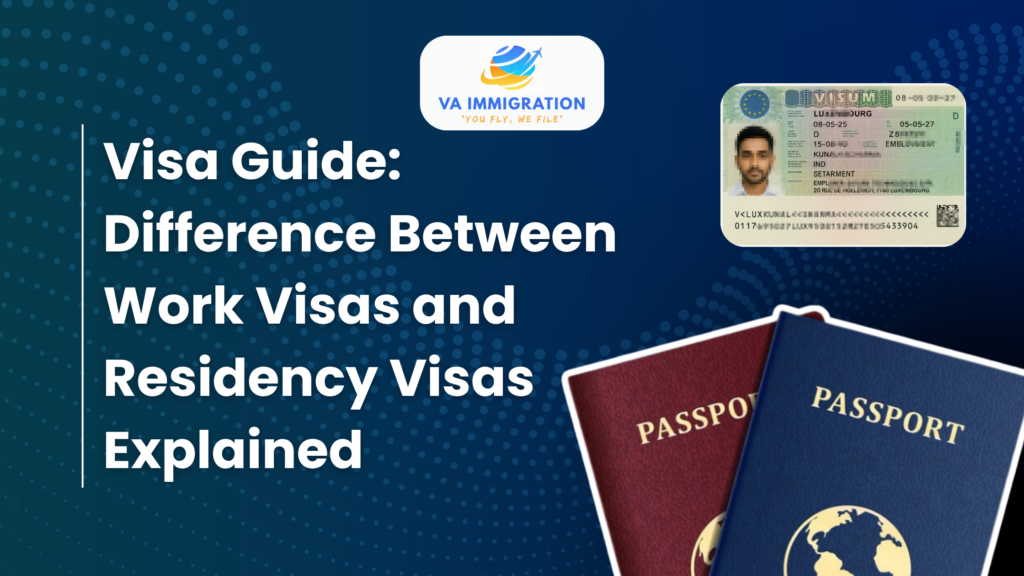Introduction:
A lot of Indians dream of going abroad to work or settle permanently. But when it comes to visa types, Difference between work visa and residency visa (Permanent Residency – PR). Both visas are important but serve very different purposes. Understanding these differences helps you pick the right option based on your
goals, finances, and timeline.
What is a Work Visa?
A Work Visa allows you to live and work in another country for a specific, limited time—usually from one to three years. This visa is generally tied to a single employer, meaning you cannot freely change your job without the government or employer’s permission. The visa also needs to be renewed if you want to continue working beyond the expiry date.
- For example, in Canada, the Temporary Foreign Worker Program (TFWP) issues such visas where you work for the employer who sponsors you. In Germany, the Job Seeker Visa lets you stay up to six months to find a job, after which you can apply for a work permit. In UAE and Gulf countries, work permits are tied to specific employers, and switching jobs requires official approval.
Work visas are a good choice for those who want to go abroad quickly, start earning, or gain international experience without immediate plans to settle permanently.
Get detail information of What is a work visa?
What is a Residency Visa (PR)?
Permanent Residency (PR) is a special visa that allows you to live and work permanently in the country. Unlike a work visa, PR holders have the freedom to change jobs without restrictions, access government services such as healthcare, education for children, and social benefits. After a certain number of years—usually between 3 to 5— you can apply for full citizenship and a passport if you want.
Popular PR programs include Canada’s Express Entry system, which is points-based and invites skilled immigrants based on age, education, work experience, and language ability. Australia has a similar Skilled Migration Program, and New Zealand offers the Skilled Migrant Category for qualified professionals.
PR is suitable for those who want to settle with their families, plan for a long-term future abroad, and benefit from all rights of a resident, including eventual citizenship.
Get detail information of What is Permanent Residency?
Which One Should You Choose?
If you have a confirmed job offer abroad and want to start working quickly, a Work Visa is the fastest route. It allows you to gain international experience and earn foreign income but usually with restrictions on job mobility.
If your goal is to settle down abroad permanently, bring your family, and access government benefits, then Residency Visa (PR) is the right option. PR processes usually take longer and require points-based qualification or employer sponsorship.
Real Facts to Consider:
- Work visas are typically faster but may have limited job security.
- PR visas offer more benefits but need patience and strong documentation.
- Some countries allow converting Work Visa to PR after a few years of work.
- Family members’ inclusion policies differ between Work and PR visas.
Final Tip:
VA Immigration offers a free assessment of your profile and goals. We guide you whether to start with a Work Visa or aim directly for PR based on your qualifications and timeline.
Follow us on Facebook and Instagram for jobs updates and visa updates.

